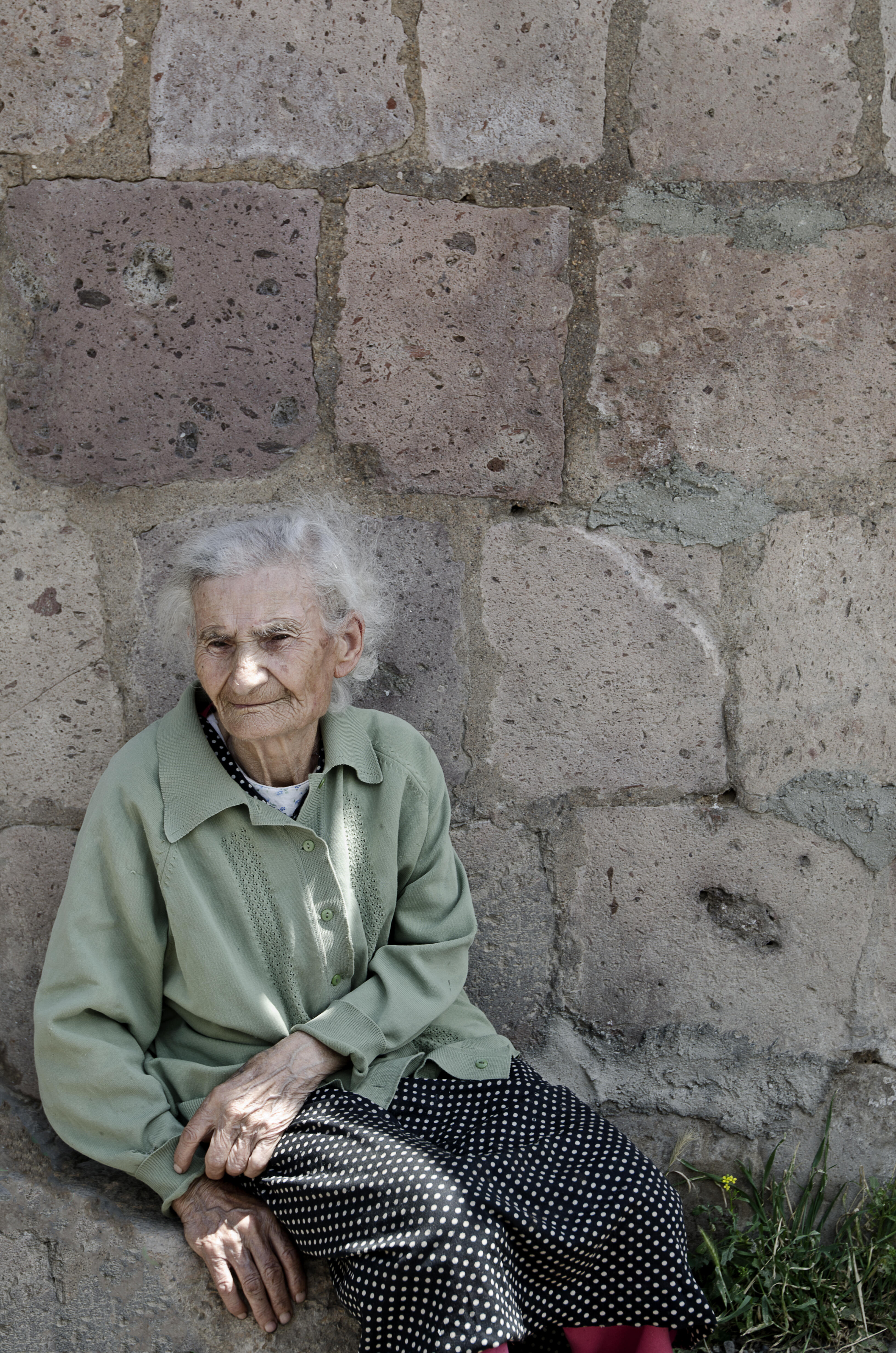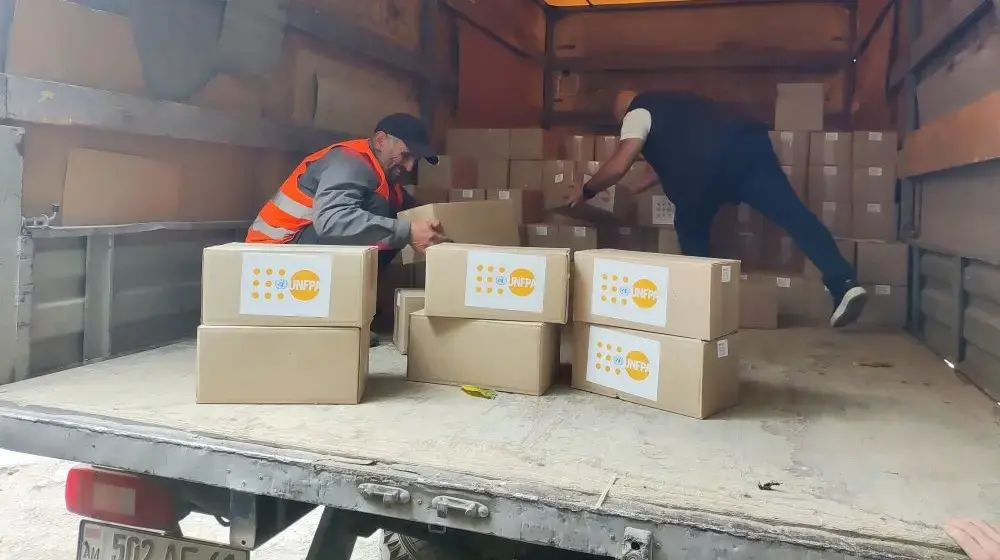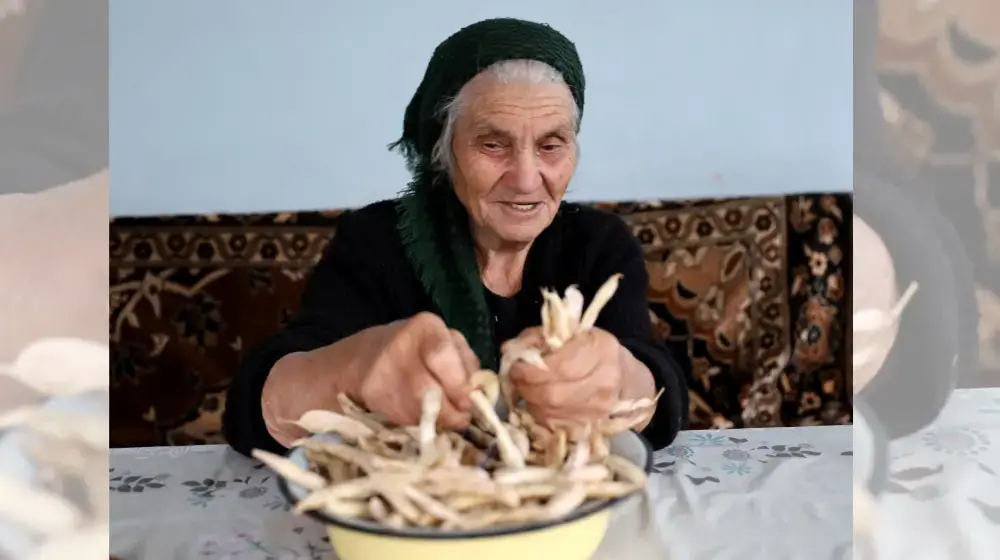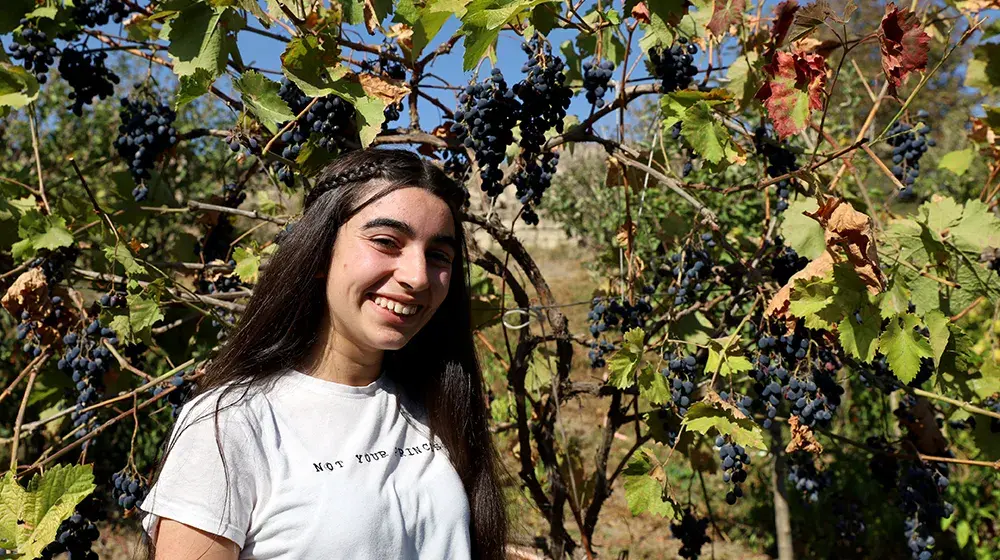YEREVAN, Armenia, 9 June 2020 – The United Nations in Armenia has mobilized 1 million USD from the UN Secretary-General’s global COVID-19 “Recover Better Fund” to tackle the immediate and short-term socio-economic impact of COVID-19 in Armenia, leveraging the ongoing multi-sector response.
Titled “COVID-19 and Resilience in Armenia: Mitigating the Socio-Economic Impact on Vulnerable People and Communities”, the Joint Programme combines the work of seven UN Agencies, UNDP, UNICEF, IOM, UNFPA, UNIDO, FAO and UNHCR. Under the guidance of the UN Resident Coordinator, the Joint Programme seeks to support the Government and people of Armenia by addressing specifically the needs of the most vulnerable populations in Armenia, including families of children with disabilities, single mothers, elderly people, survivors of domestic violence, frontline workers, displaced persons and labour migrants, as well as stressed small businesses.
UNFPA Armenia will implement the following activities within the Project:
1. One-time financial assistance to vulnerable groups (the elderly, women with disabilities, women aged 50-63 who are out of the labor market, single mothers who have children with disabilities);
2. Technical assistance to the Ministry of Labor and Social Affairs of the Republic of Armenia in developing tools for rapid assessment of the needs for planning and providing the necessary socio-economic services.
3. Creating employment opportunities, creating opportunities for entrepreneurship, helping vulnerable groups of women, the elderly and families caring for the elderly through creating small enterprises or providing opportunities for their re-profiling.
The UN Resident Coordinator in Armenia, Shombi Sharp announced the new initiative yesterday during a joint discussion on the broader COVID-19 response between the UN Country Team and the Government of Armenia, with Deputy Prime Minister Mher Grigoryan and key Ministry representatives.
“We at UN Armenia have worked hard to develop a new partnership that will help strengthen Government capacities and initiatives to directly support people and communities most vulnerable to the impact of COVID-19, helping ensure ‘no one is left behind’,” Mr. Sharp said during the discussion.
“On behalf of the Government, I would like to thank the United Nations for being by Armenia's side at this difficult time, and I also appreciate the constructive cooperation established with the United Nations in Armenia. The goal of all of us is to effectively fight the pandemic and to mitigate its socio-economic consequences as much as possible," the Deputy Prime Minister of Armenia, Mher Grigoryan emphasized.
Priority outcomes of the Joint Programme include: 1) rights and evidence-based social protection measures - particularly cash transfer and primary services - to enhance and expand the coverage for minimizing exposure and vulnerability of disadvantaged groups to socio-economic impacts of COVID-19; and 2) support and promotion of employment and entrepreneurship efforts for disadvantaged persons and micro, small and medium-sized Enterprises (MSMEs) including through improved access to financial and technical assistance, as well as digital innovation.
The support from the “Recover Better” fund became possible thanks to the first contributions of Governments of Switzerland, the Netherlands, Norway, and Denmark enabling the UN to launch the COVID-19 response fund. Organizations and individuals who wish to support this initiative may do so via the specialized website by directly earmarking their contribution to Armenia, or contacting the UN Armenia Resident Coordinator Office for further information.
*The “Recover Better Fund” is a UN inter-agency finance mechanism launched by UN Secretary-General, Antonio Guterres in April 2020 in support of low- and middle- income countries to overcome the health and development crisis caused by the COVID-19 pandemic. The Fund, administered by the Multi-Partner Trust Fund (MPTF), targets those most vulnerable to economic hardship and social disruption (For more information on the MPTF, please refer to: http://mptf.undp.org).





